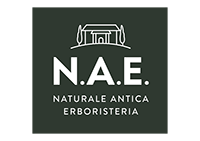FAQ
Frequently Asked Questions
Learn more about N.A.E. Naturale Antica Erboristeria
Who or what is ECOCERT?
All our N.A.E. products are certified by Ecocert according to COSMOS ORGANIC standard. It means that each and every N.A.E. product fulfills all necessary criteria for the COSMOS Organic standard:
- minimum 95% of the total ingredients are from natural origin,
- minimum 20% organic farming of total (10% for rinse-off products), and free from parabens, colorants & synthetic fragrance.
How are N.A.E. products certified organic?
ECOCERT is an independent organic certification organization, founded in France in 1991. It is based in Europe but conducts inspections in over 80 countries, making it one of the largest organic certification organizations in the world.
ECOCERT primarily certifies food products, but also certifies cosmetics, detergents, perfumes, and textiles. The company inspects about 70% of the organic food industry in France and about 30% worldwide.
What is the COSMOS Standard?
The COSMOS standard has been developed at the European and International level by BDIH (Germany), COSMEBIO & ECOCERT (France), ICEA (Italy) and SOIL ASSOCIATION (UK) who are the founders of the COSMOS-standard AISBL (international independent non-profit association registered in Belgium) to define common requirements and definitions for organic and/or natural cosmetics).
To be certified according to the COSMOS standard, products must comply with the defined criteria on:
- origin and processing of ingredients
- composition of total product
- storage, manufacturing and packaging
- environmental managementlabelling and communication
- inspection, certification and control
What is the difference between COSMOS ORGANIC and COSMOS NATURAL Standards?
Being certified organic according to the COSMOS ORGANIC Standard such as N.A.E. is the ultimate level of certification. Indeed, the COSMOS NATURAL Standard defines common requirements and definitions for natural cosmetics, not organic.
For COSMOS ORGANIC Standard, the requirements are the following:
- minimum 95% of the total ingredient are from natural origin,
- minimum 95% of the physically processed agro-ingredients must be organically farmed,
- minimum 20% of the total product must be organically farmed (by exception, for rinse-off products, non-emulsified aqueous products, and products with at least 80% minerals or ingredients of mineral origin, at least 10% of the total product must be organic).
While for COSMOS NATURAL Standard, the requirements are the following:
- minimum 95% of the total ingredients are from natural origin,
- no requirements to use a minimum
What is the difference between ECOCERT, BDIH and COSMEBIO?
These are all independent organic certification organizations, altogether they founded the COSMOS ORGANIC and NATURAL Standards.
ECOCERT is the organization with the widest geographical footprint (Europe and worldwide) whereas the others are more local: COSMEBIO in France and BDIH in German-speaking countries.
What is the percentage of natural ingredients in N.A.E. formulas?
According to COSMOS ORGANIC Standard, organic products have a minimum of 95% of total ingredients from natural origin. Depending on the product categories, the percentage ranges between 97% and 99% and is always indicated on each individual pack.
What is the percentage of organic ingredients in N.A.E. formulas?
According to COSMOS ORGANIC Standard, organic products have a minimum of 20% of total ingredients from organic farming for leave-in products and 10% for rinse-off products. Depending on the product categories, the percentage ranges between 10% and 27% and is always indicated on each individual pack.
What does it mean to have a VEGAN formula?
All N.A.E. formulas are vegan, which means no involvement of:
- any animal product, by-product or derivative,
- testing of the products on animals conducted as the initiative of the company or on its behalf as prescribed by law
- animal genes or animal-derived substances at the development or production of genetically modified organisms. Such products must be labelled as such.
Are your formulas tested on animals?
You will know that animal testing for cosmetic products and cosmetic ingredients is prohibited in the EU. Naturally, we follow this obligation for N.A.E.
Are N.A.E. formulas suitable for pregnant women?
All our N.A.E. products are extensively tested for compatibility and safety and can be used of course by pregnant women. However, we do recommend reading the ingredient list (INCI) provided on pack carefully to identify and avoid ingredients consumers might be allergic to.
Are N.A.E. formulas suitable for kids?
All products are very mild and could also be used for children above 3 years of age. Below this age, we recommend the usage of baby care products, especially formulated to fulfill baby skin needs as their skin is much more sensitive and delicate than kids 'and adults' one.
Are N.A.E. formulas suitable for sensitive skins?
Products for sensitive skin must fulfil several requirements. We developed some formulas that fulfil those requirements and thus address the specific needs of sensitive skin. It is the case of the Soothing Day Cream, as well as the fragrance-free line (Delicatezza).
What is the link of N.A.E. to sustainability?
All N.A.E. products have minimum 97% of total ingredients from natural origin and 20% of ingredients from organic farming (10% for rinse-off products).
Also, we are using plant-based plastic tubes and 100% recycled PET bottles for our coloured liquid hand soaps.
What does “plant-based plastic tube” mean?
All N.A.E. tubes are bio-based: it means that they are made from 100% renewable material, are fully recyclable and have a reduced carbon footprint.
We are using green plastic made from ethanol sugarcane, a renewable raw material while traditional plastic uses fossil raw materials such as oil or natural gas. Also, our plastic captures and fixes CO2 from the atmosphere during its production, helping to reduce greenhouse gases emissions. Finally, our plant-based plastic tubes are also sustainably sourced as all ethanol suppliers have signed a “Code of Conduct for Ethanol Suppliers” covering aspects such as respect for biodiversity and good environmental practices.

